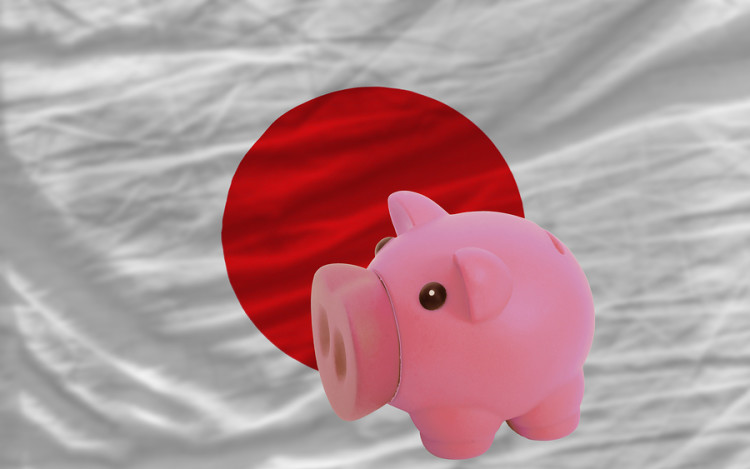Japan Scandal Gives Fresh Boost to Yen Bulls Eyeing 100 Mark

published Mar 12, 2018, 8:05:45 PM, by Masaki Kondo and David Finnerty
(Bloomberg) —
A deepening political scandal that has rattled Japanese Prime Minister Shinzo Abe’s administration has become a fresh reason for yen bulls to spy a move past 100 per dollar.
The stars had already been aligning for the yen to potentially cross 100 for the first time since 2016, thanks to a combination of trade flows, investor positioning and monetary-policy divergence. Now Finance Minister Taro Aso has come under pressure thanks to a controversial land deal and currency traders are taking notice.
“The theme for 2018 is the risk of the dollar-yen breaking 100,” said Masashi Murata, a currency strategist at Brown Brothers Harriman in Tokyo. The yen above that level “wouldn’t look excessive from the perspective of its fundamentals.”
The yen advanced to a 16-month high of 105.25 per dollar this month, before pulling back to around 106.30 Tuesday, and traders are now closely watching the key 105 level. Here are five reasons that suggest it may continue its ascent and push through 100, something not seen since August 2016.
BOJ Exit
The Bank of Japan has been reducing its monthly bond purchases, a part of its quantitative easing program which has been keeping yen strength in check. Its bond holdings increased by about 54 trillion yen in February from a year earlier, the slowest pace since July 2013 and well short of guidance of about 80 trillion yen. More reductions could lead to further yen appreciation.
Governor Haruhiko Kuroda made it clear last week the current stimulus program will remain in place for a while. There’s concern that any move past 100 could prompt a policy response if it’s deemed to hurt attempts to reflate the economy. However, his remarks on March 2 that the bank will start thinking about a stimulus exit in fiscal 2019 have at least increased market speculation over the timing of a possible normalization.
Kuroda’s mention of an exit was meant to prime markets for an eventual withdrawal, said Daisuke Uno, chief strategist at Sumitomo Mitsui Banking Corp. in Tokyo. “Given the reduction in bond purchases, the BOJ is already laying ground for an exit. It just isn’t saying so.”
Current-Account Surplus
The increase in Japan’s current-account surplus is another factor exerting upward pressure on the yen. The currency has tended to follow the broadest measure of international trade with a 12-month lag. Government data showed Thursday the surplus was near a decade high in January.
Hedge Fund Positioning
Leveraged funds have been gradually cutting back bearish bets on Japan’s currency since Jan. 9, according to data compiled by the U.S. Commodity Futures Trading Commission. However, as the funds still hold net short positions, a further unwinding could lead to further yen gains. AMP Capital Investors Ltd.’s Nader Naeimi and Kit Trading Fund Ltd. said last month that they are betting on yen strength.
Technical Indicators
The dollar-yen exchange rate has been largely in a downward trend since the start of this year and approached a key support level of 105 on March 2. There are no major options expiries between the 105.00 and 100.00 levels for the remainder of this month, according to data from the Depository Trust & Clearing Corp. This indicates the rate is unlikely to find much support from options-defense strategies if the spot breaks below 105.
“There is no strong support below 105, so once the dollar-yen starts to fall, it would run fairly fast,” said BBH’s Murata.
Politics
Finally, a scandal over alleged favors to a school for a property deal has shaken some voters’ confidence in the Abe administration. The affair probably won’t hurt the ruling Liberal Democratic Party’s grip on power after a resounding general election win last autumn. However, it could affect the likelihood Prime Minister Shinzo Abe, whose administration has endorsed a weak yen, will become Japan’s longest serving leader.
As Murata puts it — “Yen weakness would come to an end once Abenomics is over.”
–With assistance from Andy Sharp and Patricia Lui.To contact the reporters on this story: Masaki Kondo in Singapore at mkondo3@bloomberg.net ;David Finnerty in Singapore at dfinnerty4@bloomberg.net To contact the editors responsible for this story: Tan Hwee Ann at hatan@bloomberg.net Cormac Mullen, Shikhar Balwani
COPYRIGHT © 2018 Bloomberg L.P



No Comment